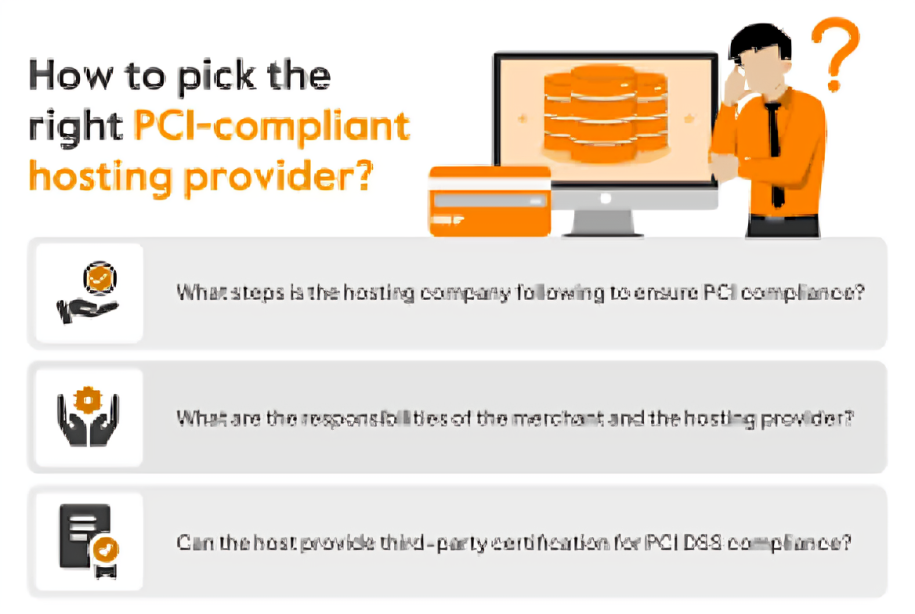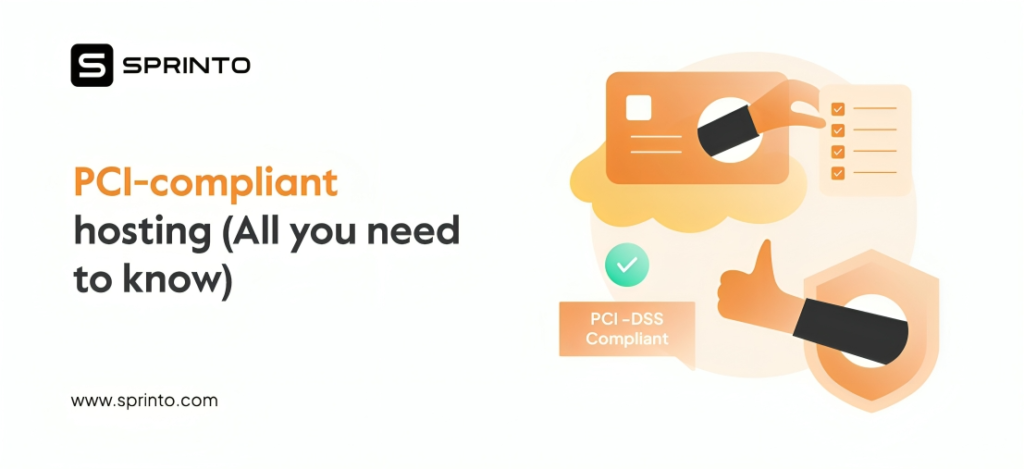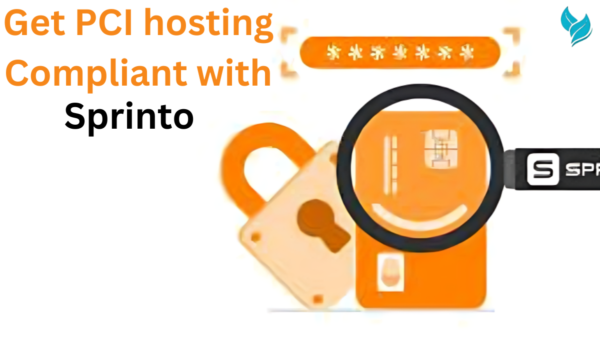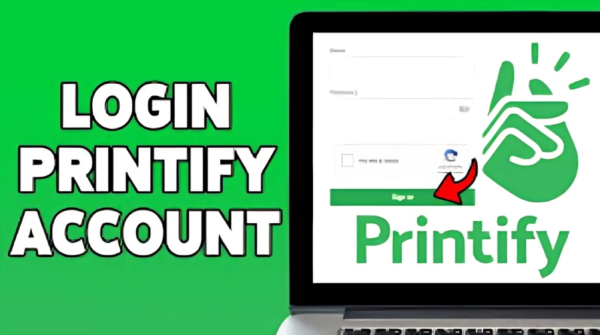In today’s digital economy, businesses of all sizes rely heavily on accepting, processing, and storing payment card data. As a result, PCI Hosting has become a critical aspect of running a secure and compliant business. With the rise in cyberattacks and stringent compliance requirements, businesses must ensure they are following the Payment Card Industry Data Security Standard (PCI DSS). PCI Hosting plays a pivotal role in safeguarding sensitive payment information, helping companies achieve compliance, and protecting both their reputation and their customers.
In this article, we will explore what PCI Hosting is, why it is crucial, and what businesses need to know to stay compliant. We will also answer some common questions about PCI Hosting.

What is PCI Hosting?
PCI Hosting refers to hosting solutions that are specifically designed to meet the stringent requirements of the Payment Card Industry Data Security Standard (PCI DSS). PCI DSS is a set of security standards designed to ensure that all companies that process, store, or transmit credit card information maintain a secure environment. The standards were created by the Payment Card Industry Security Standards Council, which includes major credit card brands such as Visa, Mastercard, American Express, and Discover.
The goal of PCI Hosting is to provide a secure infrastructure that helps businesses comply with PCI DSS regulations. This type of hosting ensures that the servers, data storage, network architecture, and other IT elements meet the rigorous security controls set by PCI DSS.
Why is PCI Hosting Important?
For any business that handles credit card transactions, compliance with PCI DSS is not optional. Failure to comply can result in fines, legal consequences, and reputational damage, not to mention the potential loss of customer trust. PCI Hostings offers a solution by providing a secure and compliant environment for handling sensitive payment information.
Here’s why PCI Hosting is so important:
Security of Sensitive Data
The most important aspect of PCI Hostings is the protection it provides for sensitive payment card data. PCI Hosting services are built with advanced security features such as encryption, firewalls, intrusion detection, and continuous monitoring to prevent unauthorized access to cardholder data.
Regulatory Compliance
Achieving PCI DSS compliance on your own can be a daunting task, especially for smaller businesses with limited IT resources. PCI Hostings providers specialize in maintaining compliance with PCI DSS standards, ensuring that the infrastructure they provide is secure and up to date with the latest security requirements. This relieves the burden on businesses, allowing them to focus on their core operations.
Reduced Risk of Breaches
Data breaches involving payment card information can be devastating for businesses. Not only do they result in financial losses, but they can also lead to a damaged reputation and loss of customer trust. PCI Hostings minimizes the risk of breaches by providing a robust, secure hostings environment specifically designed to protect against cyberattacks.
Cost-Effective Compliance
Implementing and maintaining PCI DSS compliance on your own can be expensive, particularly when you factor in the costs of specialized security equipment, Software, and personnel. PCI Hosting offers a cost-effective alternative by providing pre-configured, secure infrastructure that meets PCI DSS requirements. This saves businesses the time, money, and effort required to build and maintain their own compliant environment.
Key Features of PCI Hosting
Not all hostings providers offer PCI Hosting services, and those that do must meet certain criteria. Here are the key features to look for when choosing a PCI Hostings provider:
Secure Network Architecture
A secure network is fundamental to achieving PCI DSS compliance. PCI Hostings providers implement secure network infrastructure that includes firewalls, secure VPNs, and segmentation of sensitive data from other areas of the network.
Tools for PCI Hosting
| Tool Name | Description |
|---|---|
| 🌐 Cloudflare | A powerful CDN and security service that helps protect your website from DDoS attacks and ensures secure transactions. |
| 🔒 Comodo | Provides SSL certificates and other security solutions to protect sensitive customer information during online transactions. |
| 🛡️ Sucuri | Offers website security services, including malware removal, firewall protection, and security audits to ensure PCI compliance. |
| 🦠 McAfee | Provides comprehensive cybersecurity solutions, including antivirus software and web protection to secure payment data. |
| 📜 PCI Security Standards Council | The official source for PCI DSS compliance resources and guidelines for securing payment card information. |
| 🔑 DigiCert | Offers high-assurance SSL certificates, helping organizations secure their websites and comply with PCI standards. |
Data Encryption
Encryption is one of the most important requirements of PCI DSS. PCI Hostings providers encrypt sensitive payment data both at rest (when stored on servers) and in transit (when being transmitted between servers and systems). This ensures that even if unauthorized parties gain access to the data, they will not be able to read or use it.
Access Control
PCI DSS requires that access to sensitive cardholder data be restricted to only those individuals who need it to perform their job. PCI Hostings providers implement strict access control mechanisms, such as multi-factor authentication (MFA) and role-based access controls, to ensure that only authorized personnel can access sensitive data.
Vulnerability Management and Monitoring
PCI Hostings providers continuously monitor their infrastructure for vulnerabilities and potential threats. Regular vulnerability scans, security patches, and intrusion detection systems are used to identify and respond to security issues in real time. This proactive approach helps to prevent data breaches before they occur.
5. Regular Audits and Reporting
To maintain PCI DSS compliance, businesses are required to undergo regular security audits and assessments. PCI Hostings providers typically offer reporting and audit support to help businesses meet these requirements. This ensures that businesses can demonstrate compliance to regulators and avoid fines or penalties.
How to Choose the Right PCI Hosting Provider
Choosing the right PCI Hosting provider is critical to maintaining compliance and securing your business’s sensitive payment information. Here are a few factors to consider when evaluating potential providers:
1. Compliance Certification
Ensure that the hosting provider is certified as PCI DSS compliant and that they undergo regular audits to maintain their compliance status. You should also ask for documentation to verify their compliance.
Security Features
Look for a provider that offers robust security features, including data encryption, firewalls, intrusion detection, and access control. The provider should also have a strong track record of preventing and responding to security incidents.
Scalability
As your business grows, your hosting needs may change. Choose a provider that offers scalable solutions that can grow with your business without sacrificing security or compliance.
Customer Support
PCI DSS compliance is complex, and businesses need a hostings provider that offers responsive customer support to help with any issues that may arise. Make sure the provider offers 24/7 support and has a dedicated team of experts who understand PCI DSS requirements.

FAQs?
What is PCI DSS compliance?
PCI DSS compliance refers to the adherence to the security standards set by the Payment Card Industry Security Standards Council (PCI SSC) for companies that handle credit card transactions. These standards protect cardholder data and ensure that businesses maintain a secure environment
Do all businesses need PCI Hosting?
Any business that stores, processes, or transmits credit card data must comply with PCI DSS. While not all businesses need dedicated PCI Hostings, many choose it to simplify compliance and improve the security of their payment infrastructure.
How often must PCI DSS compliance be maintained?
PCI DSS compliance is an ongoing requirement. Businesses must regularly monitor their systems, apply security updates, and undergo periodic assessments to ensure continued compliance.
Is PCI Hosting expensive?
While PCI Hostings can be more expensive than standard hostings options, it is often more cost-effective than building and maintaining your own PCI-compliant infrastructure. The costs depend on the provider and the level of security and service you require.
Conclusion
In today’s world of digital transactions, ensuring the security of payment card data is more important than ever. PCI Hosting offers a comprehensive solution for businesses to meet PCI DSS compliance and protect sensitive payment information. By choosing the right PCI Hosting provider, businesses can safeguard their customers’ data, minimize the risk of breaches, and focus on growing their operations with confidence.











